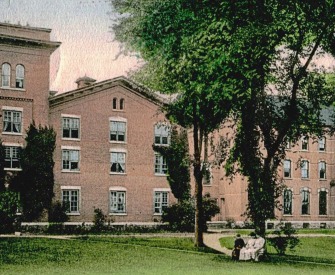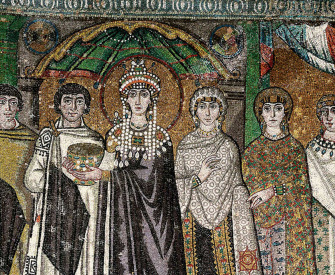A Jewish man with parents alive is a fifteen-year-old boy, and will remain a fifteen-year-old boy till they die!
—Philip Roth, 1969Hostages to Fortune
Family values are no longer so simple to define. Which families, and what values?
By Lewis H. Lapham
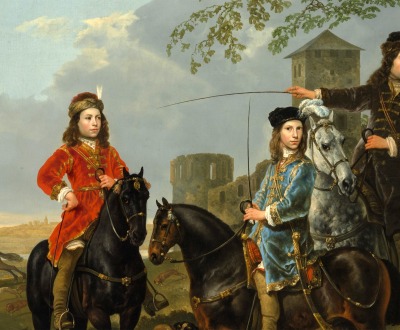
Equestrian Portrait of Cornelis and Michiel Pompe van Meerdervoort with Their Tutor and Coachman, by Aelbert Cuyp, c. 1652–53. The Metropolitan Museum of Art, The Friedsam Collection, Bequest of Michael Friedsam, 1931.
He that hath wife and children hath given hostages to fortune, for they are impediments to great enterprises, either of virtue or mischief.
—Francis Bacon
Councilor to Queen Elizabeth, lord chancellor to King James I, believed to be the wisest man in Shakespeare’s England, Sir Francis overlooked the risk on the other side of the exchange. His advice is sound, but the chances of acting on it unavailable to the impediments—to wife and children held hostage to the fortune of having been born or married to a villain, a bankrupt, or a fool. The uneven distribution of the sentiment favored the interest of the state, a policy that
Lord Bacon fondly embraced. He was an attentive courtier skilled at the seeking of grace and privilege from the perfumed hand of majesty, deft at the removals of unpleasing truth, and with a handsome turn of phrase he circumvented the awkward fact that family is a game of chance.
A throw of the dice, sometimes lucky, as often not, the question of nurture as opposed to nature as well and truly answered by an astrological sign or a poisoned fig as by a storm at sea, a DNA sequence, or a marriage to the king of France. Families grow as do the flowers and the weeds, of their own accord and as they will. Sometimes they lay waste to empires; sometimes they achieve the dignity of a dress label, but always they furnish a society with its living tissue and its intimations of immortality, impart to the individual a sense of self if not a criminal record or a noble name.
Which is as near to a moral as is likely to be drawn from the text and illustration gathered in this issue of Lapham’s Quarterly. The topic is better addressed with memoir and biography than with a manifesto or a sermon. But during the forthcoming election year, we can expect repeated reference to “family values” in the campaign speeches offering safe return to the real America down home in a painting by Norman Rockwell, and so it’s worth at least the hazard of a guess as to what the words mean. Which families, and what values? The Kennedys playing football in McLean, Virginia? The Corleones contemplating a murder on Long Island? Joan Crawford reading to her children from A Day in Fairy Land ?
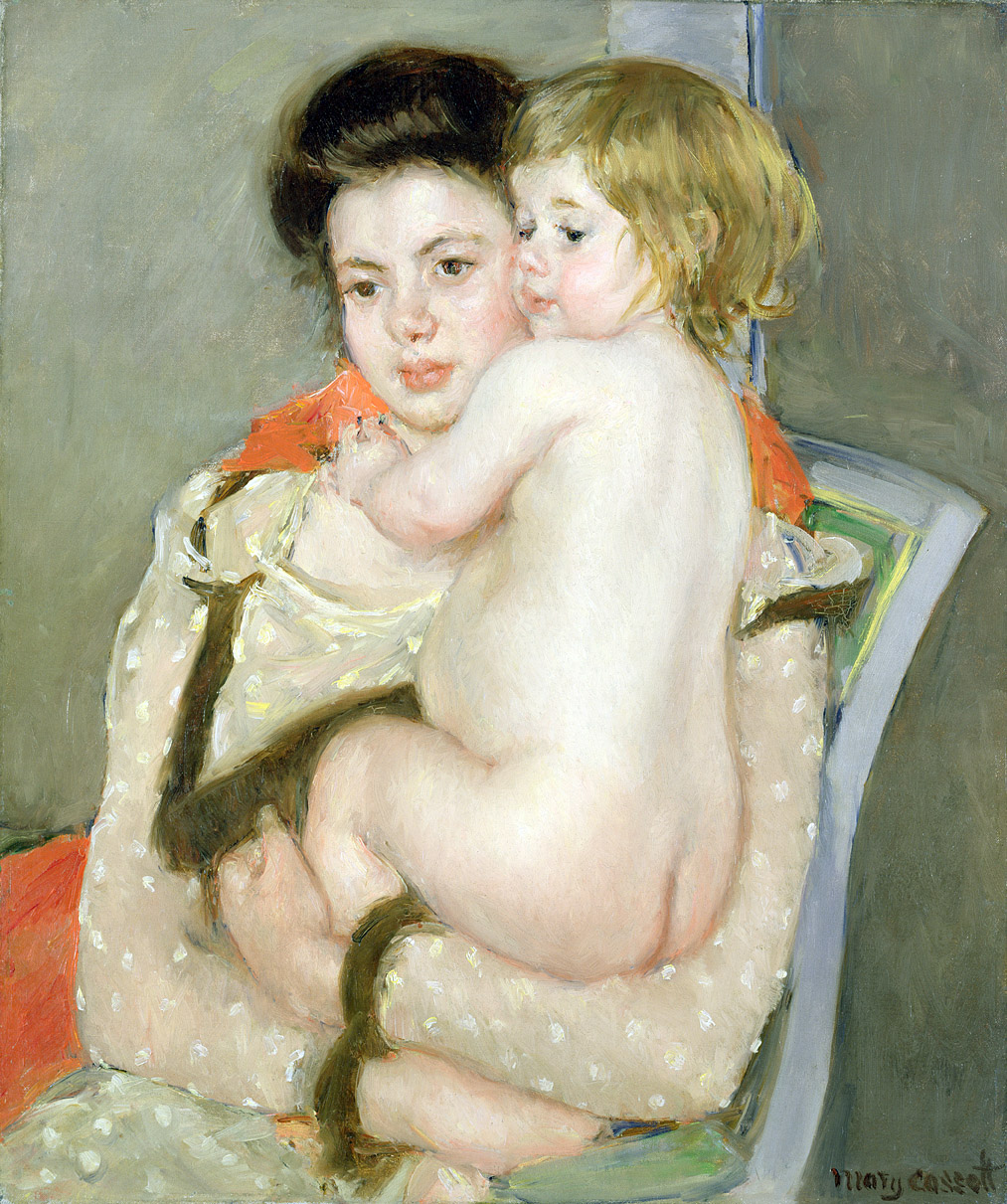
Reine Lefebvre Holding a Nude Baby, by Mary Cassatt, 1902. Worcester Art Museum, Massachusetts.
The familiar phrase tends to find me at a loss because the family values that I take to be my own are four hundred years behind the times, more in line with those espoused by Lord Bacon than with those that sustain the ratings of television situation comedy. I was born into a family derived from ancestors who had settled in New England in the 1630s, brought up listening to stories told about the risings and reversals of its fortunes with the passing of the generations—of honor won at Bunker Hill and Saratoga, reputation lost in the War of 1812; of ship captains in the early China trade, some of whom died safe and rich at home in Maine, others reported missing at sea somewhere west of Hawaii and east of Borneo. The great-grandfather for whom I was named in 1935 had been a founder of what became the Texas Oil Company, which supplied him with a store of wealth that his eldest son, a gambler and a sportsman, managed to utterly destroy. During my grandfather’s term as mayor of San Francisco in the 1940s, various members of the extended family (never-before-seen in-laws, near and distant cousins) gathered for Christmas at his house on Jackson Street to play cards and talk about City Hall politics and the war. Instead of saying grace, my grandfather was given to declaiming “The Wreck of the Hesperus” or “The Shooting of Dan McGrew”; the younger children were expected to know, and if called upon to stand on their chairs and recite, the verses of Rudyard Kipling or Lewis Carroll. Runs of bad luck were to be expected, as it was to be expected that the Walrus and the Carpenter would dine on oysters, or that at least one of the grandchildren would topple face down into the fruit bowl or the soup. To my limited understanding at the age of ten, family was simply the way things were, all present hostages to fortune, value measured out in the uneven distribution of power rather than in a scale of justice or by the degrees of sentiment.
I was fifteen before I saw any form of television, twenty by the time I was properly introduced to the nuclear American family happily in residence on network television—Mom and Dad, both white and presumably Protestant, content in their love for one another, his steadiness of heart and mind matched by her comforting spirit and competent managing of the household that was clean, well-lit, above all nice; two children, both adorable and neither of them known to the police; no crippling disease or black people anywhere in sight; nobody talking about money.
I’d never met such people, didn’t know the neighborhood, but apparently it is their exemplary innocence and charm that the saviors of the republic these days have in mind when they trace the cause of many of our sorrows back to the deterioration of the once-upon-a-time triple-A-rated American family values. The voices of alarm draw upon a surplus of statistics proving the theorem of national decline—roughly half of all first marriages ending in divorce, 40 percent of America’s children being born to unwed mothers, the high-school dropout rate in major U.S. cities standing at nearly 50 percent, 16.4 million children under the age of eighteen condemned to live in abject poverty.
The numbers have changed over the distance of the last sixty years, as have the case studies and the poignant anecdotes, but no matter what the trouble in the forefront of the news—the 1960s sexual revolution, the war in Vietnam, the feminist and civil-rights movements, the 1980s culture war, the steady loss of Christian conscience, villainy in Washington—the keepers of the nation’s conscience somehow manage to shift the fault from the game in which all present find themselves held hostage to the flawed behavior of the impediments—on the part of spoiled children, tie-dyed and degenerate; on the part of spendthrift wives shirking wifely duties; on the part of the country’s political and corporate overlords giving no thought to posterity, content to sell out the public good for a mess of private pottage. The economy stumbles into recession, the schools decay, the currency is debased, the middle class implodes, the hope of the future is foreclosed, and why, pray tell, is that? Not enough family values left in the minds of the free and the hearts of the brave.
The message doesn’t lack for historical antecedent. I listen to President Obama in his weekly address preach the importance of being a parent, or to Rick Santorum at an Iowa dinner say, “We can’t have limited government without strong families,” and I’m come again to a Roman forum in the late first century bc to hear the emperor Augustus remind the available young bachelors in the crowd of their marital obligations to the state. How was Rome to sustain its greatness unless it gave birth to successive generations of manly citizens, thus making its mortality immortal? And where were those successive generations to be found if the city’s young and unmarried optimates squandered “all their virile energy on greasy slave girls and nasty Asiatic-Greek prostitutes”? Or, even more “loathsome,” if they lived a life of sexual debauch that led to no fruitful gain of enterprise, either of virtue or of mischief? Young men “unwilling to perform any of their natural social duties” the emperor likens to “beasts” and “brigands,” and as recounted by the poet Robert Graves, the speech could serve as a Tea Party blog post denouncing gay marriage or as an argument for sealing the nation’s borders against any immigration, legal or illegal, on the grounds that 44 percent of children under eighteen belong to a minority, forecasting within another thirty or forty years the spectacle of an America no longer recognizable in Norman Rockwell’s family paintings.
Nor would the household of the Roman imperial family have been recognizable in the idealized renderings of a virtuous Roman republic composed by the historian Livy and the poet Virgil, the texts to which the emperor looked for the evidence of a golden age. To read
Suetonius’ Lives of the Caesars is to encounter clinical studies of domestic dysfunction and discontent—Caligula committing incest with each of his three sisters, Agrippina the Younger poisoning her husband, Nero sending assassins to kill his mother—almost as marvelous as the ones made sacred by the authors of the Old Testament—Cain murdering Abel, Lot copulating with his daughters, the Almighty Father adored as a vengeful tyrant never happier than when busy at the task of slaughtering his progeny. All in all, a collection of family portraits more nearly resembling those grouped around Charles Manson and Jim Jones than those posted under a Christmas tree with Cliff Huxtable and Archie Bunker.
The mourners at the bier of America’s lost family values like to construe them as immutable laws of nature, comparable to the force of gravity or the speed of light. The notion is reduced to an absurdity on the opening of the nearest history book, even the ones admitted to the fourth-grade classrooms in Texas. The story of Western civilization is for the most part a collection of tales told by, for, and about the ruling families whose smile was fortune and whose frown was death. Family matters were the affairs of state, in ancient Israel and imperial Rome as in the tragedies of Euripides and Shakespeare. Blood relation was power, wives and children its instruments. The tragedy of King Lear follows from the royal wish to value the worth of a rich kingdom in the currency of fine sentiment. As a consequence the king lost both his kingdom and his mind. So also with the reading of the records of the families Plantagenet, Borgia, Tudor, Medici, Stuart, Bourbon, Habsburg, and Bonaparte—marriage was an exchange of property; so was murder. Men died from time to time, and worms did eat them, but not for love.
The kindlier expressions of family feeling show up in Shakespeare’s comedies, as they do in Montaigne’s essays, but it isn’t until the eighteenth and nineteenth centuries that they begin to make their entrance on the stage of history as well as in the works of literature—in the correspondence of John and Abigail Adams, of Henry and William James, in the novels of Jean-Jacques Rousseau and
Jane Austen, eventually in those of George Eliot, Charles Dickens, and Louisa May Alcott. The feudal aristocracies give way to a capitalist bourgeoisie willing to pay, often dearly, for the luxuries of romantic love. Marriage is still a property market, but family is no longer the fate of nations. Alexis de Tocqueville reporting in 1840 on his travels in Andrew Jackson’s America distinguishes the family values established in the Old World aristocracy from those engendered by the fledging democracy. What is cold, correct, ceremonious, stiff, gives way to a “natural warmth of the heart”:
In proportion as manners and laws become more democratic, the relation of father and son becomes more intimate and more affectionate; rules and authority are less talked of; confidence and tenderness are oftentimes increased, and it would seem that the natural bond is drawn closer in proportion as the social bond is loosened…
It is not then by interest, but by common associations and by the free sympathy of opinion and of taste that democracy unites brothers to each other. It divides their inheritance, but it allows their hearts and minds to mingle together…while it places the various members of the community more widely apart.
Tocqueville doesn’t know whether society “upon the whole,” loses by the revolution in mutual relations, but he thinks that the impediments must be the gainers by it. How could they not be? He regards America as an experiment newly emerging from the wilderness, its virgin soil unburdened with castles and coats of arms. Aristocratic birthright doesn’t serve as legal tender. “In democracies,” Tocqueville notes elsewhere in his report, “nothing is more great or more brilliant than commerce: it attracts the attention of the public and fills the imagination of the multitude.”
What helps to unite the Americans to each other, allowing “their hearts and minds to mingle,” is their shared grasping for a noble profit. It is the monetization of the aristocratic family values that becomes the interest of the state, that eventually allows for the marketing of Tocqueville’s democratic family—“intimate and more affectionate,” “natural warmth of the heart”—as a consumer product.
The Hollywood movies of the 1930s place the product in the romantic landscapes of the frontier West. Father and son, mother and daughter draw closer in their common effort to plant the corn, feed the horse, count the chickens, sing the hymn, survive the winter. The social bond loosens in its tie to distant government but strengthens in its adherence to a near community of friends, neighbors, and fellow countrymen. Their feeling for one another they express as the companionable virtues—forbearance, trust, patience, forgiveness—values also highly prized by lying real-estate salesmen and thieving politicians.
The 1950s television sitcoms shift the mise en scène to the leafy suburbs, but the virtues in the kitchen with the Cleavers remain as they were around the cooking fires on the old Oregon Trail. So have they continued to remain despite the events of the last sixty years having demonstrated to the viewing audience that father no longer knows best. The casting directors have kept pace with the indexes of social and cultural change, extending the natural bond to welcome the gay couple and the unwed mother, but the scripts don’t lose the thread of their interior sentiment. All present are more or less resigned to their misfortunes, accepting of one another’s flaws and prejudices, aware of the injustice loose in the streets and entrenched in City Hall, but choosing to find their security and their refuge under the blankets of cheerful and forgiving laughter. Not the kind of citizens apt to run amok on the road to revolution. Folks with bills to pay and a credit rating to maintain, mindful of surveillance cameras, dependent on the grace and favor of the executive in charge of human resources, loaded down with more and heavier debt than can be towed quietly out of town by even the sturdiest pickup truck on sale from General Motors.
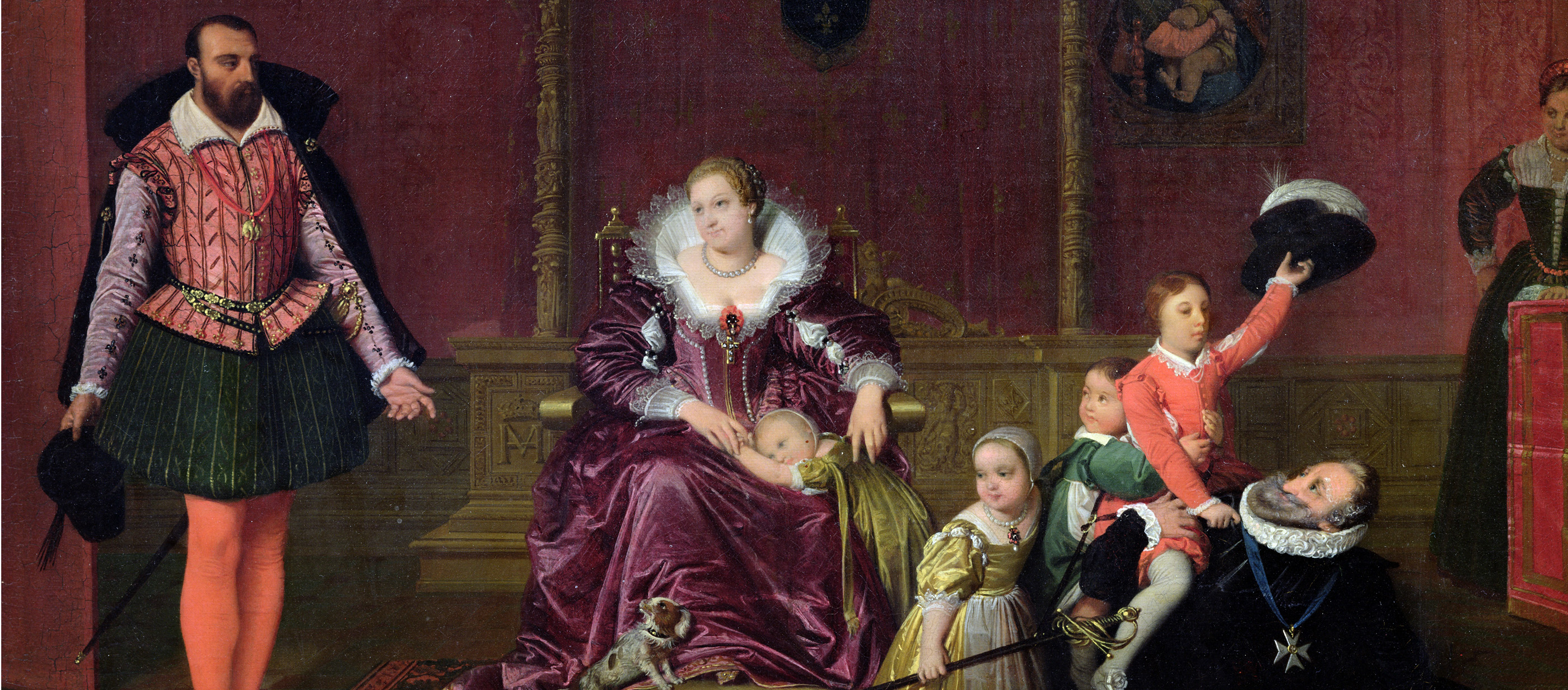
Henri IV Playing with His Children, by Jean-Auguste-Dominique Ingres, 1817. Petit Palais, Paris.
Or so at least the custodians of the nation’s peace of mind would have it safely understood. Which is why the presidential campaigns prescribe treating the disease of American decline with a heavy dose of the family values that we’ve been squandering all these years in the cash machines and divorce courts. The message is upbeat and bipartisan, as certain of an applause moment for President Obama as it is for Rick Perry. Better yet and best of all, the message is backed with the full faith and credit of the corporate sponsors. The advertising that supports the TV news—for the Olive Garden, Home Depot, or the iPhone—comes fully equipped with the images of a loving dad, a caring mom, a contented child, and a playful pet.
It matters not if dad is a serial killer, mom is gay, the pet an aardvark or a snake. What matters is the substitution of sentiment for power. Let the natural bonds draw closer as the social bond is loosened, and our monied classes remove the obstacle of having to provide for interests other than their own. The bait and switch is the virtual reality serving as stunt double for the reality, or, to put it bluntly, in a rough translation from the late-eighteenth-century French, let them eat videotape. By the dawn’s early light in Oakland and Detroit, the American dream is bursting in air, but inside Hollywood’s star-spangled studios, our flag is still there—not flying where it might add to the sum of the public good, but right there in your own home, online and on TV, “natural warmth of heart” available all day, every day, in time and on demand, at the user-friendly subscription price of ninety-nine dollars a month. Rejoice in the things of the spirit. Welcome to the nursery where everybody is still a child.
If I knew how to write a television sitcom or a campaign stump speech, I might know where to find the moral in this issue of Lapham’s Quarterly. The stories told in the following pages don’t lead to the framing of a general rule or the shaping of a sales pitch. Nor are they meant to. They are unique unto themselves—migrant workers moving west in the 1930s during the Great Depression gathering in John Steinbeck’s The Grapes of Wrath: “In the evening a strange thing happened: the twenty families became one family, the children were the children of all”; a father who still knows best, ceremonious and stiff, attempting in Henry James’ Washington Square to save his daughter from her infatuation with a wastrel; Carl Sandburg expressing his regrets, “I wish to God I never saw you, Mag. / I wish to God the kids had never come.” What the reader has in hand are proofs and demonstrations of family values attesting to the multitude of reflections in the mirror of the human tragedy; they may or may not have anything to say to the voters in Iowa.
